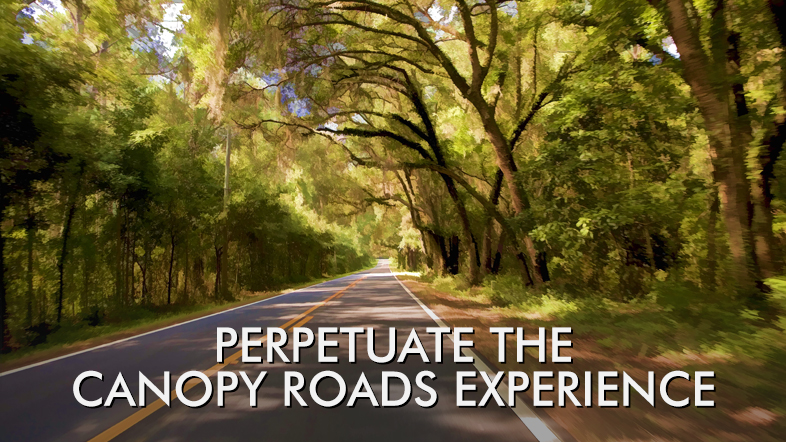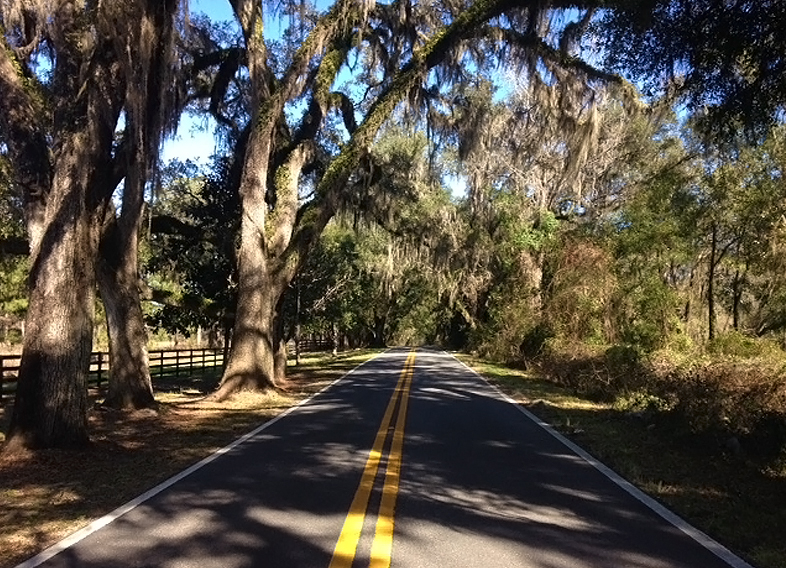
View the Canopy Road Master Plan
Vision and Purpose of the Canopy Roads Management Plan
The Canopy Road Management Plan will increase awareness, preservation, and enhancement of the environmental and cultural benefits of the canopy roads through education, community engagement, and partnerships.
Guiding development projects to include innovative solutions for preservation and enhancement of resources as well as protecting and enhancing a recognized environmental, cultural, and historic resource.
All the while providing users a varied and immersive experience that goes beyond motorized access.

Maintain the character of the canopy roads through preservation and enhancement of existing intrinsic resources. Most importantly, this includes the trees and vegetation that provide the stunning shaded canopy over and along the road, but also includes scenic view sheds and historic places and structures that contribute to the experience.
Implementation
A canopy roads quality rating system was developed by the committee early after its formation in 1993 and resulted in a paper map. This is currently being converted to a GIS based mapping application and will be updated as surveys are completed.
- Staff is available to assist with creating a plan to enhance and improve the CRPZ on your property, please email the Planning Department.
- Potential to partner with IFAS and Master Gardeners in progress.
Support Leon County’s Strategic Initiative to plant 1000 trees along canopy roads. To date, 1,100 trees have been planted on canopy roads including Old Bainbridge Rd, N. Meridian Rd., and Miccosukee Rd.